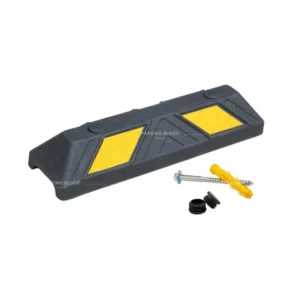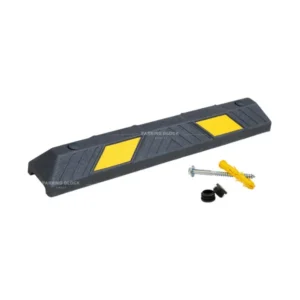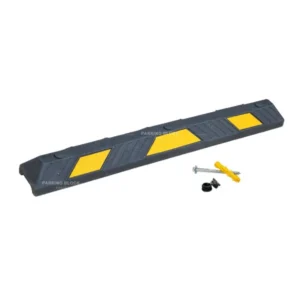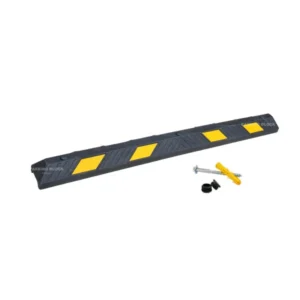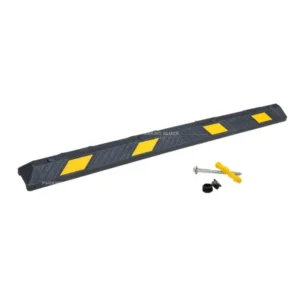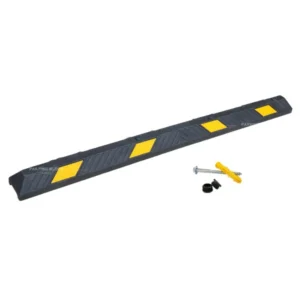Concrete Parking Blocks
Concrete parking blocks, also known as wheel stops or parking curbs, are essential in many parking lots and garages. These pre-casted cement blocks mark and define individual parking spaces, helping keep vehicles in their designated areas and reducing the risk of accidents or damage.
Concrete is a popular choice for construction in the parking lot industry due to its durability and versatility. Precast concrete panels, reinforced-concrete solutions, and concrete mix can be used to construct parking structures, driveways, sidewalks, and concrete walls.
Concrete parking blocks, made from high-quality cement, offer long-lasting durability, and resistance to wear and tear, vandalism, and vehicle damage. They are also cost-effective, inexpensive to purchase and install, and require minimal maintenance.
Additionally, concrete parking blocks are versatile, coming in different sizes and shapes, and can be customized with logos or markings to meet specific parking facility needs. Proper drainage and reinforcement ensure a durable parking lot with adequate traffic control and specification, ideal for both off-street and on-street parking.
Using concrete products such as speed bumps, concrete pipes, and corner guards further enhances the safety and appearance of the parking lot. Now, let’s quickly overview the pros and cons of concrete parking blocks.
For more information, feel free to discover here: Parking Lot Bumpers Made from Different Materials.

Discover here our full range of Parking Stops!
Pros and Cons of Concrete Parking Blocks
Concrete parking blocks made from high-strength, durable concrete are the perfect solution for marking and managing parking spots. With their ability to withstand heavy loads and impacts, concrete blocks offer excellent protection for cars and other vehicles, making them an ideal choice for parking lots and structures.
In addition, these blocks are weather-resistant and require minimal maintenance, ensuring a low-cost and long-lasting solution for handicapped, no-parking, and other designated parking spots. With the option for decorative concrete, cast-concrete or precast concrete construction, and even concrete wall panels, the possibilities for customizing a concrete parking solution are endless.
Don’t forget the added safety benefits of installing reflective, speed humps and retaining walls for added protection. With recycled plastic and different types of concrete, including prestressed concrete, you can be sure you are making an eco-friendly choice. Concrete steps, sidewalks, and paving provide a complete concrete solution for your right-of-way and parking needs.
However, concrete parking blocks also have some drawbacks. One of the main disadvantages is their weight. Concrete blocks can be heavy and difficult to move, making them challenging to install or reposition. Additionally, they can be difficult to remove once installed, as they are anchored into the ground.
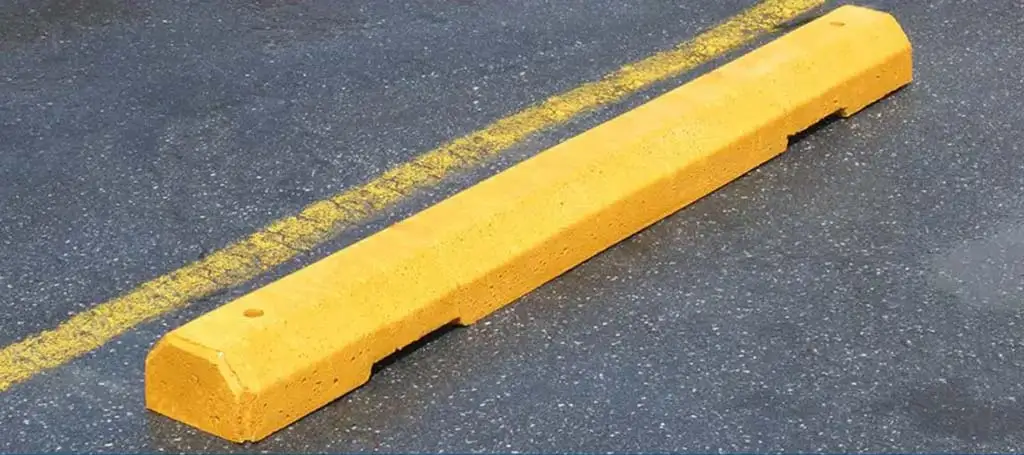
What are the pre-casted cement blocks in parking lots called?
The pre-casted cement blocks used in parking lots, commonly called concrete parking blocks, wheel stops, or parking curbs, are essential to any parking facility. They are designed to mark and define individual parking spaces, helping to keep vehicles in their designated areas and reducing the risk of accidents or damage.
These blocks are placed at the front or back of a parking space and act as a physical barrier to prevent vehicles from encroaching on sidewalks, landscaping, or other areas. The blocks also help ensure that vehicles are parked safely and orderly and are less likely to cause damage to other cars or the parking facility itself.
Concrete parking blocks are made from high-quality cement, which makes them durable and long-lasting. They can withstand the wear and tear of daily use and exposure to the elements. They are also resistant to vandalism and damage from vehicles, making them a reliable and secure option for any parking facility.
In addition to their practical function, concrete parking blocks also serve an aesthetic purpose. They come in various sizes and shapes and can be customized to suit the specific needs of a parking facility. They can also be painted or stenciled with logos or other markings, making them a practical and attractive option for any setting.
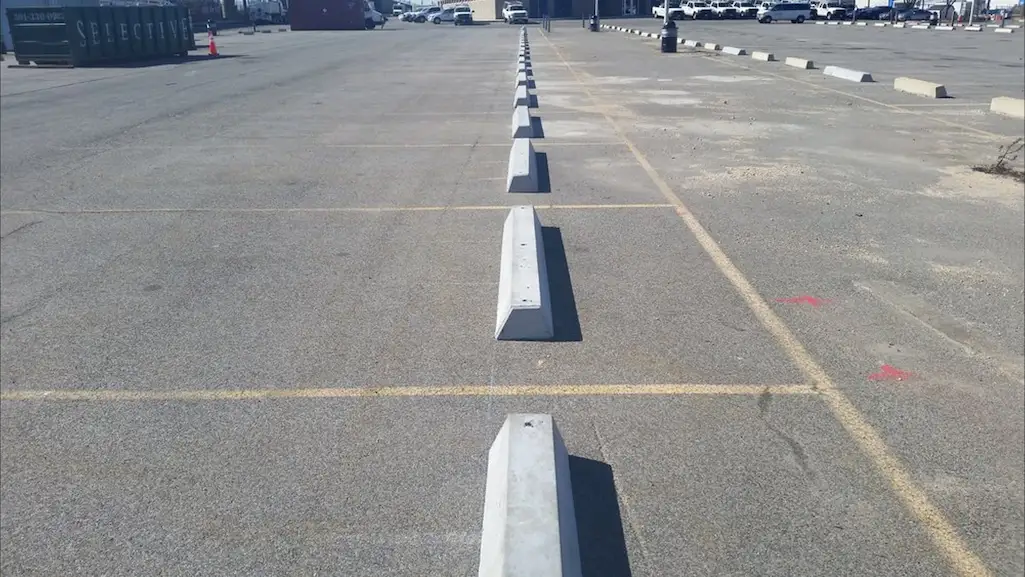
How to make concrete wheel stops
Concrete wheel stops are essential to off-street parking, commercial concrete construction projects, and sidewalks. Made from high-quality concrete masonry materials and appropriately cured, these concrete barriers serve as effective parking spots and a slow-down tool for drivers, offering vehicle and pedestrian protection.
Concrete curbing and driveways can also be poured in various shapes and sizes to fit specific needs, utilizing recycled materials and providing a durable, eco-friendly solution. Whether you need concrete services for your building project, a concrete walkway, or concrete paving, the Concrete Institute can assist with expert concrete solutions and construction guidance.
In addition to functionality, concrete wheel stops can also be stained or designed with decorative elements, blending seamlessly with concrete building and sidewalk aesthetics. With proper installation and use of parking signs, concrete wheel stops ensure safe occupancy and minimize risks of traps for buses and other vehicles.
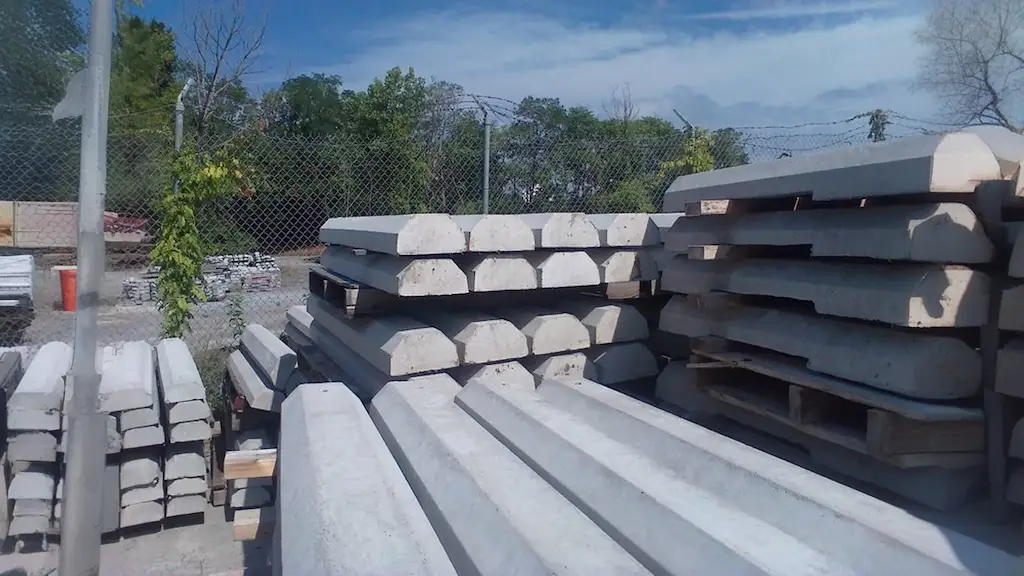
How to move concrete parking stoppers
Moving concrete parking stoppers can be challenging due to their heavy weight and bulky size. However, with the right equipment and techniques, it is possible to reposition them in a new location. A forklift or crane is one of the most common ways to move these blocks.
The forklift or crane can lift the block from its current location to a new spot. It is essential to use proper safety equipment and techniques when moving these heavy blocks, such as straps or chains, to secure the blocks to the forklift or crane. This will help to prevent accidents and damage to the blocks or the surrounding area.
Another important consideration when moving concrete parking stoppers is ensuring enough space to manoeuvre the blocks. These blocks are large and bulky, and you will need enough room to manipulate them into their new location. You should also ensure that the surface where you are moving the blocks is stable and level to prevent the blocks from tipping or shifting during the move.
Alternatively, many facilities now avoid this problem by choosing rubber wheel stops. They are easier to install, move or remove without heavy equipment, making them a practical choice for car parks and logistics sites.
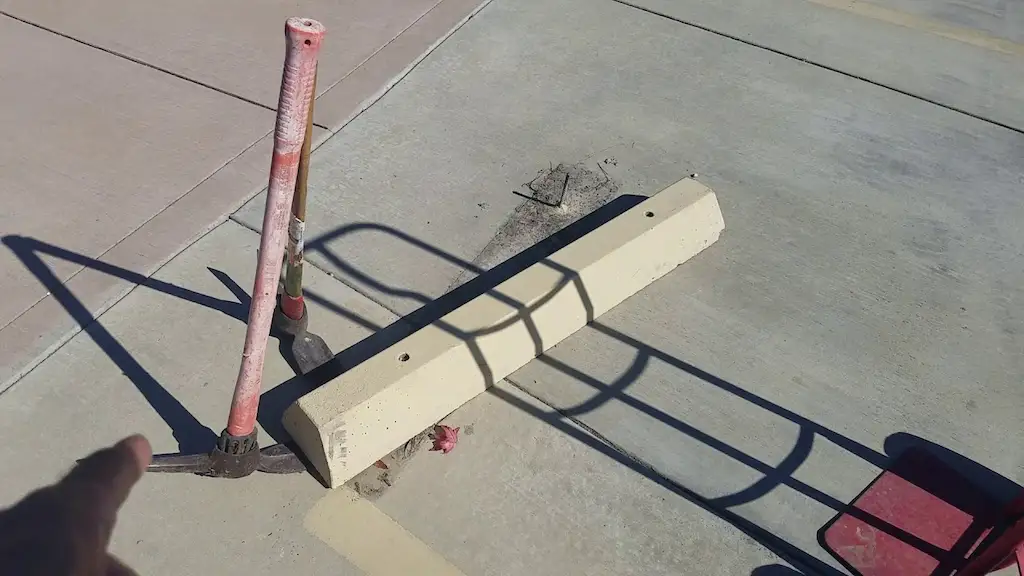
Conclusion
Concrete parking blocks are a durable and cost-effective solution for marking parking spaces in lots and garages. While they have some drawbacks, such as their weight and difficulty of movement, their long-lasting and low-maintenance nature makes them a popular choice for both commercial and residential use.
To learn more about the industry, you can visit the National Precast Concrete Association (NPCA) website, which provides resources and information for the precast concrete industry.
FEEL FREE TO CONTACT US
OUR FACTORY
Parking Block Direct is a well-known wheel stop manufacturing company located in Qingdao.
Since 2013, we have produced and distributed premium-quality products across different countries to help people improve vehicular and pedestrian safety in public parking lots and garages.
OUR WORLDWIDE DELIVERY
We ship our products in reliable packing worldwide. We ensure our products are delivered to your doorstep in the best possible condition for your public parking garage.
No matter where you live, contact us and learn about the shipping process, delivery date, or any other questions.
For further information, feel free to check the following pages:
hello@parkingblockdirect.com
